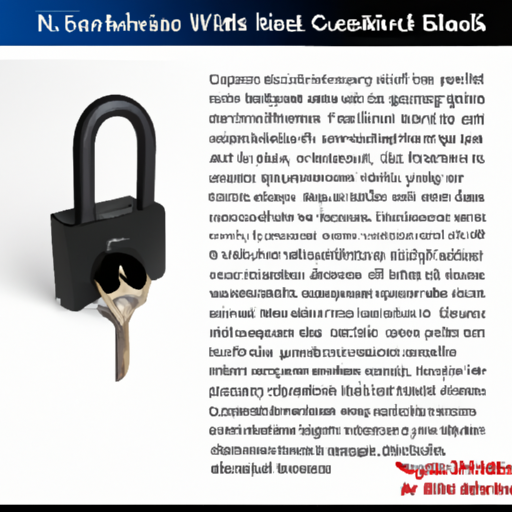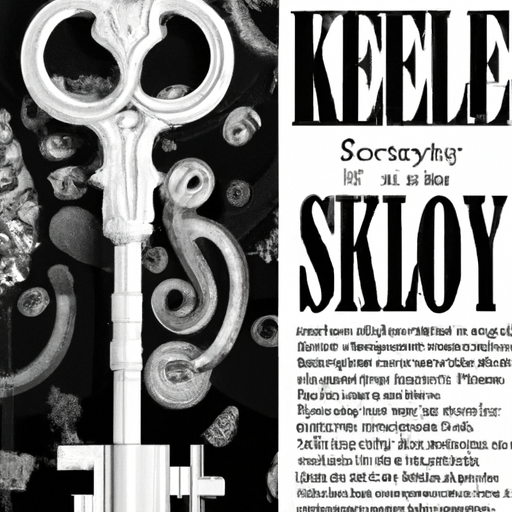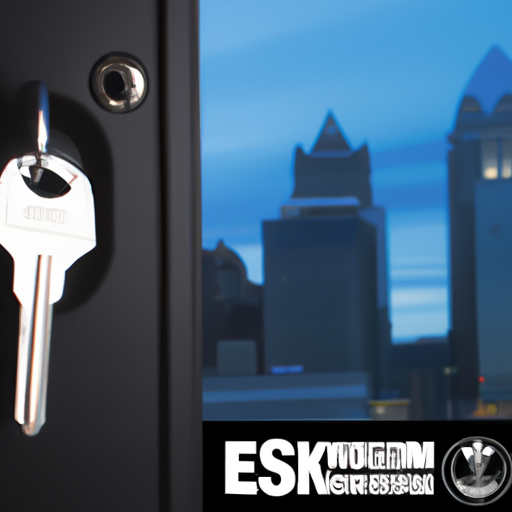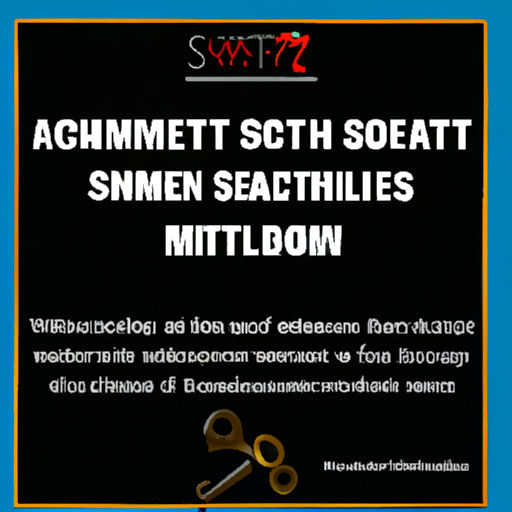
Hey, did you know that there are several locksmith scams that you should be aware of in Charleston? It’s always important to stay informed and protect yourself from potential scams. So, let’s talk about the different types of locksmith scams that you might come across.
First off, there’s the bait-and-switch scam. In this scenario, you might call a locksmith for help with a locked door or a broken lock. However, when the locksmith arrives, they quote you an outrageously high price for their services, claiming that the job is much more complicated than expected. They may even try to convince you that they need to drill or replace the entire lock, when in reality, a simple fix would suffice. Another common scam is the unlicensed locksmiths who claim to be professionals but lack the necessary credentials. These individuals often overcharge for their services and may even cause damage to your property. It’s essential to do your research and find a reputable and licensed locksmith to avoid falling victim to these scams. Keep yourself informed and remember, if a deal sounds too good to be true, it probably is!

1. Fake Locksmiths
1.1. Description
Fake locksmiths are individuals or companies posing as professional locksmiths but lack the necessary skills, knowledge, and credentials to provide legitimate locksmith services. They often advertise themselves as local locksmiths in Charleston, targeting individuals who are locked out of their homes, cars, or businesses and urgently need assistance.
1.2. Tactics
Fake locksmiths employ various tactics to deceive unsuspecting customers. They often use generic or vague business names that may appear legitimate but are designed to mislead. They may also use unofficial or unmarked vehicles, making it difficult to identify their legitimacy. Additionally, fake locksmiths may advertise extremely low rates to attract customers, only to significantly increase the price once they arrive.
1.3. Warning Signs
There are several warning signs that can help you identify a fake locksmith. If a locksmith does not possess proper identification or refuses to provide their credentials, it is likely a red flag. Furthermore, if they arrive in an unmarked vehicle or lack professional tools and equipment, it is best to be cautious. Another warning sign is if they insist on drilling or damaging your locks, as professional locksmiths typically explore alternative solutions before resorting to such measures.
1.4. How to Avoid
To avoid falling victim to fake locksmiths, it is essential to do thorough research before choosing a locksmith service. Look for reputable companies with positive customer reviews and high ratings. Additionally, ensure that the locksmith has proper identification and is affiliated with a professional locksmith organization. Contact multiple locksmiths for price estimates and compare them to ensure they are consistent. It is also advisable to keep the contact information of a reliable locksmith on hand to avoid making rushed decisions when faced with an emergency.
2. Bait-and-Switch Scams
2.1. Description
Bait-and-switch scams involve locksmiths luring customers with enticing offers or low prices but then changing the terms upon arrival. They may advertise discounted rates or special deals to attract customers, only to demand significantly higher prices once they have been engaged for the job.
2.2. Tactics
These fraudulent locksmiths often manipulate customers by providing misleading information over the phone or through online advertisements. They may quote a low price initially but claim upon arrival that the job is more complex or requires additional services, which they conveniently charge extra for. They use this tactic to exploit the urgency of the situation, forcing customers to either pay the inflated price or be left without assistance.
2.3. Warning Signs
If a locksmith quotes an unusually low price or offers a deal that seems too good to be true, it is important to exercise caution. Bait-and-switch locksmiths often use this strategy to attract customers and then abruptly change the terms. Any locksmith who refuses to provide a written estimate or becomes evasive when asked about pricing details should be considered suspicious.
2.4. How to Avoid
To protect yourself from bait-and-switch scams, always request a detailed, written estimate before allowing any locksmith to proceed with the job. Ask for clarification on any potential extra charges or fees that may arise. Compare quotes from different locksmiths and ensure they align with market rates. If a locksmith insists on changing the price upon arrival, decline their services and seek assistance elsewhere.
3. Overcharging
3.1. Description
Overcharging scams involve locksmiths charging excessive fees for their services, often taking advantage of customers who are vulnerable due to emergency situations or their lack of knowledge about fair pricing.
3.2. Tactics
Unscrupulous locksmiths may intentionally misrepresent the complexity of the job or exaggerate the time required to complete it, resulting in inflated charges. In some cases, they may also add unnecessary services or parts to the bill, further increasing the cost. Overcharging scams typically occur when customers are in a rush or in desperate need of locksmith assistance.
3.3. Warning Signs
If a locksmith quotes a price that seems unreasonably high compared to what other established locksmiths charge for similar services, it is probably a warning sign of overcharging. Additionally, be cautious if the locksmith seems hesitant to provide a breakdown of the charges or becomes defensive when questioned about the pricing.
3.4. How to Avoid
To avoid falling victim to overcharging scams, it is crucial to research average locksmith service costs in your area. Get multiple estimates from different locksmiths and compare them. Be wary of any drastic deviations from the average price range. Request a detailed breakdown of all charges, including labor, materials, and any additional fees. If a locksmith refuses to provide transparent pricing or becomes evasive about cost-related inquiries, consider it a red flag and seek services elsewhere.
4. Unlicensed or Uninsured Locksmiths
4.1. Description
Unlicensed or uninsured locksmiths are individuals or companies operating without the necessary licenses or insurance coverage required by law. These unqualified locksmiths often offer their services at lower prices but expose customers to potential risks and substandard workmanship.
4.2. Tactics
Unlicensed or uninsured locksmiths often fly under the radar by avoiding the registration and certification processes required for legitimate locksmith businesses. They may advertise their services online or through word-of-mouth, targeting customers who prioritize cost savings over quality and reliability. By operating without the proper credentials, these locksmiths can evade accountability for any damages or subpar work performed.
4.3. Warning Signs
The absence of a valid license or insurance should raise suspicions regarding the legitimacy of a locksmith. Licensed locksmiths typically display their credentials on their website or provide them upon request. If a locksmith refuses to show proof of licensing or insurance coverage, it is best to avoid engaging their services.
4.4. How to Avoid
Ensure that any locksmith you hire is properly licensed and insured. Verify their credentials by requesting documentation or checking with official licensing authorities. Licensed locksmiths have undergone proper training and are held to specific standards. Insurance coverage also provides protection in the event of any damage to your property during the locksmith service. Prioritize hiring qualified professionals who demonstrate proof of their licensing and insurance.

5. Locksmith Services Not Performed
5.1. Description
This scam involves locksmiths who charge for services they either did not perform at all or only partially completed. They may claim to have resolved a lockout or repaired a lock but leave the job incomplete or without providing the expected level of service.
5.2. Tactics
Locksmiths perpetrating this scam often exploit customers’ lack of knowledge about locksmith techniques. They may perform a quick and inadequate fix, making it appear as if the problem is resolved, but the issue reoccurs shortly after. They may also intentionally create additional problems during the course of their work, providing an excuse to charge more for repairs that were never necessary in the first place.
5.3. Warning Signs
If a locksmith claims to have completed a service but you notice unresolved issues or the problem persists shortly after their visit, it is possible that they did not perform the work properly or at all. Be cautious if the locksmith appears rushed or unwilling to explain the details of the service provided.
5.4. How to Avoid
To avoid falling victim to this scam, it is essential to choose reputable locksmiths with positive reviews and a track record of satisfied customers. Do your research, check customer feedback, and ensure the locksmith is licensed and insured. If possible, supervise the work being performed and ask questions to ensure you understand what is being done. If you suspect a locksmith has not completed the service as agreed, address the issue immediately and seek resolution or alternative assistance.
6. Key Duplication Scams
6.1. Description
Key duplication scams involve locksmiths who exploit the trust of customers seeking key duplication services. Instead of providing genuine duplicate keys, these locksmiths may create subpar duplicates that do not function properly or may even secretly keep a copy of the key for unauthorized access in the future.
6.2. Tactics
Unscrupulous locksmiths engaging in key duplication scams often use low-quality materials or faulty machinery to create duplicate keys. They may rush through the process, leading to poor craftsmanship and keys that may break easily or fail to work altogether. In more sinister cases, they may intentionally duplicate an extra key without the customer’s knowledge, allowing unauthorized access to the customer’s property at a later time.
6.3. Warning Signs
If a locksmith provides duplicate keys that do not work smoothly or break easily, it is a clear indication of substandard workmanship or the use of inferior materials. Additionally, if the locksmith refuses to return the original key or offers excuses for not providing it back, it should raise suspicions about their intentions.
6.4. How to Avoid
To protect yourself from key duplication scams, select a reputable locksmith with a proven track record of providing reliable key duplication services. Ask for recommendations from friends, neighbors, or colleagues who have previously used locksmith services. Insist on high-quality materials and request a guarantee for the duplicate keys. If you suspect foul play or notice any issues with the duplicates provided, contact the locksmith immediately to address the problem.

7. Emergency Locksmith Scams
7.1. Description
Emergency locksmith scams target individuals caught in urgent situations, such as being locked out of their homes, cars, or businesses. Scammers take advantage of the vulnerable state of these individuals, often charging exorbitant fees or performing unnecessary services.
7.2. Tactics
Emergency locksmith scams typically involve responding to distress calls quickly, often advertising 24/7 emergency services. Scammers may present themselves as reputable and trustworthy locksmiths, but they exploit the urgency of the situation to charge inflated prices or perform unnecessary work. They may use intimidation tactics or claim that the lock is irreparable, requiring an expensive replacement when it may not be necessary.
7.3. Warning Signs
If a locksmith arrives without proper identification, fails to show credentials, or uses aggressive or pushy tactics, it is advisable to exercise caution. Emergency locksmiths who demand immediate payment in cash and refuse to provide a receipt should also be viewed skeptically. Additionally, if the locksmith insists on replacing the lock without thoroughly assessing the situation, it may be a sign of a scam.
7.4. How to Avoid
To avoid emergency locksmith scams, it is crucial to plan ahead and identify a reputable emergency locksmith service before an urgent situation arises. Research locksmiths in your area and keep their contact information readily available. Choose a locksmith with positive reviews and testimonials from previous customers. Take the time to understand their pricing policies and inquire about any potential additional charges during emergency situations. By being prepared, you can avoid making rushed decisions and falling victim to emergency locksmith scams.
8. Online Locksmith Referral Scams
8.1. Description
Online locksmith referral scams exploit individuals seeking locksmith services through online search engines and directories. Scammers manipulate search results or advertise fraudulent locksmith services to mislead customers into engaging their services.
8.2. Tactics
Fraudulent locksmith referral scams often involve the creation of fake online locksmith listings or the manipulation of search results to prioritize scammer websites. By appearing prominently in search engine results, scammers redirect customers to their illegitimate locksmith services. They may also use misleading advertising or pay-per-click campaigns to attract customers searching for locksmiths online.
8.3. Warning Signs
If a locksmith’s website lacks consistency or professional design, it is likely a red flag. Be cautious if the website lacks contact details or if the provided contact information does not match the business name. Additionally, if the locksmith’s website displays suspiciously high ratings or overly positive customer reviews with minimal negative feedback, it may indicate manipulation.
8.4. How to Avoid
To avoid falling victim to online locksmith referral scams, it is crucial to use reputable locksmith directories or rely on recommendations from trusted sources. Verify the legitimacy of the locksmith before engaging their services. Check for consistent and accurate contact information, as well as valid licensing and insurance credentials. Furthermore, read customer reviews from multiple sources to gain a balanced perspective. If something seems suspicious or too good to be true, exercise caution and consider seeking locksmith services by alternative means.

9. Phony Addresses or Fake Listings
9.1. Description
Scammers may create fake locksmith listings or provide phony addresses to mislead customers into believing they are engaging the services of a local locksmith. These scams aim to establish trust by presenting a false sense of locality and legitimacy.
9.2. Tactics
Fraudulent locksmiths often manipulate online listings by providing false addresses or using virtual office spaces to give the impression of a physical presence in the area. They may claim to be a local locksmith, enticing customers who prefer to support local businesses. By misrepresenting their location, these scammers deceive customers into believing they are engaging the services of a trustworthy local locksmith.
9.3. Warning Signs
If a locksmith’s address does not match the location of their advertisement or website, it is a clear warning sign. Be cautious if the locksmith insists on meeting at an address different from the one provided or if they do not have a brick-and-mortar establishment. Additionally, if the locksmith claims to be a local business but lacks knowledge about the area or displays a lack of familiarity with local landmarks, it should raise suspicions.
9.4. How to Avoid
To avoid phony address or fake listing scams, verify the legitimacy of a locksmith’s address before engaging their services. Search for the address on maps or conduct a quick online search to ensure it aligns with the information provided. Use established locksmith directories or rely on recommendations from trusted sources to ensure the locksmith is reputable and operates within your area. By taking these precautions, you can protect yourself from falling victim to deceitful locksmiths.
10. Non-Transparent Pricing
10.1. Description
Non-transparent pricing scams involve locksmiths who intentionally obscure or mislead customers about the costs associated with their services. These scams exploit customers’ lack of knowledge about locksmith pricing to charge excessive or unfair fees.
10.2. Tactics
Unscrupulous locksmiths may omit or downplay certain charges when providing price estimates, leading customers to believe the service is more affordable than it actually is. They may also add hidden fees or surcharges, only revealing them after the work has been completed or during the payment process. By employing these tactics, they can manipulate customers into paying significantly more than they anticipated.
10.3. Warning Signs
If a locksmith fails to provide a clear, written estimate with a breakdown of all charges, it should raise suspicions about their pricing transparency. Additionally, be wary of locksmiths who refuse to disclose potential additional fees, such as travel expenses or emergency service charges. Any locksmith who demands immediate payment in cash without providing a receipt is likely engaging in non-transparent pricing practices.
10.4. How to Avoid
To avoid non-transparent pricing scams, insist on receiving a detailed, written estimate from the locksmith before any work begins. Request clarity on all potential charges and fees, making sure to understand what is included and what may incur additional costs. Compare multiple estimates from reputable locksmiths to gain a better understanding of the fair market price for the desired service. Ensure that the locksmith provides a detailed receipt upon completion of the job, including a breakdown of all charges. By prioritizing transparency and open communication about pricing, you can protect yourself from this type of scam.









